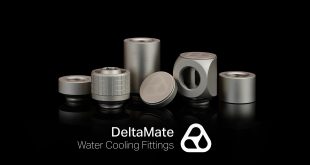The semiconductor industry has realized the benefits of Moore’s Law for 50 years, making chips that have grown from tens to billions of transistors and performing an increased range of functions from memory to logic to signal processing. Next year or in 2017, the world’s largest maker of microprocessors will roll-out chips made using 10nm process technology. However, after that it will get considerably more difficult to sustain Moore’s law. According to Intel, it will need to use new materials instead of silicon for 7nm node.
During this week’s International Solid-State Circuits Conference Intel will discuss its work on process technologies beyond 10nm. The world’s leading maker of central processing units claims that while Moore’s Law will continue beyond 10nm, it is becoming progressively more difficult to reach traditional advances in performance, power and cost due to natural leakage and resistance increases of scaled devices, and the increased cost of added masking layers.
According to Intel, in order for Moore’s Law to continue beyond 10nm, it needs to develop new materials and device structures to meet performance and power requirements, and by close cooperation between process development and product design teams to ensure that the right features are picked to deliver both higher and lower cost per transistor.
While Intel will unlikely reveal any peculiarities of its 7nm fabrication process this week, it will discuss design and economic implications beyond 10nm, which should be interesting.
Discuss on our Facebook page, HERE.
KitGuru Says: It will be very interesting to see what material Intel chooses for its 7nm fabrication process and when appropriate chips hit the market.
 KitGuru KitGuru.net – Tech News | Hardware News | Hardware Reviews | IOS | Mobile | Gaming | Graphics Cards
KitGuru KitGuru.net – Tech News | Hardware News | Hardware Reviews | IOS | Mobile | Gaming | Graphics Cards


